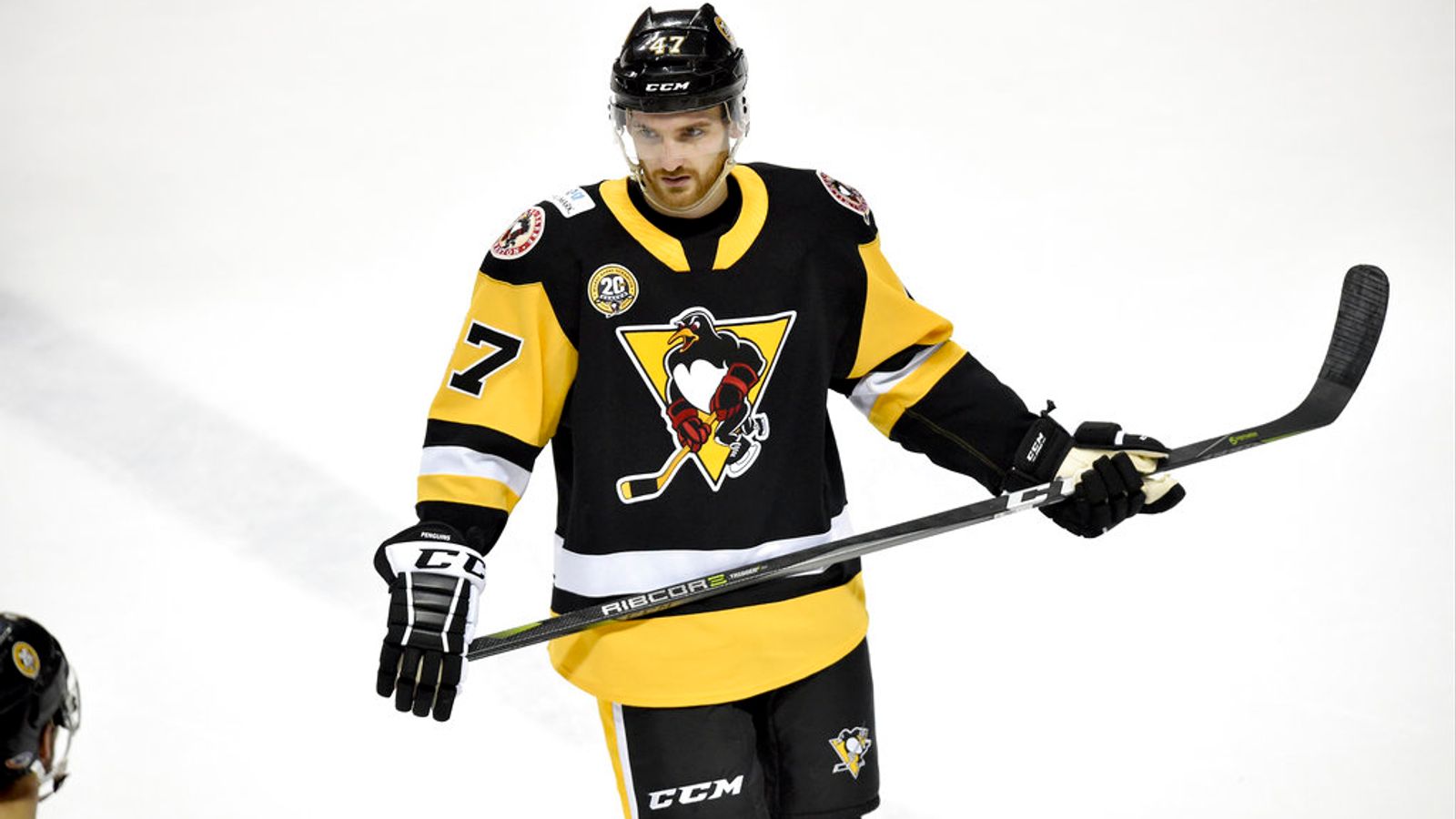A man arrested on suspicion of manslaughter following the death of ice hockey player Adam Johnson has been released on bail pending further inquiries.
Mr Johnson, 29, was seriously injured during a Challenge Cup match between his Nottingham Panthers team and Sheffield Steelers on 28 October.
The American died in hospital after being hit in the neck by an opposing player during the match at Sheffield’s Utilita Arena.
Please use Chrome browser for a more accessible video player
A post-mortem examination confirmed the Minnesota-born star died as a result of a fatal neck injury.
The crowd of 8,000 spectators at Sheffield’s Utilita Arena watched in horror as attempts were made to save his life as he lay on the ice, shielded by fellow players.
The game was abandoned and spectators were asked to leave in the aftermath.
The man was arrested on Tuesday and South Yorkshire Police confirmed on Wednesday he has been bailed to a date in the New Year as inquiries continue.
Manslaughter is an extremely varied criminal offence that can range from not being far from an accident to being just short of murder, according to the Sentencing Council.
It is categorised as either involuntary or voluntary and can carry penalties from suspended sentences up to life in prison.
Involuntary manslaughter is unlawful killing without the intent to kill or cause really serious harm – and is further subdivided into unlawful act manslaughter and manslaughter through gross negligence.
Unlawful act manslaughter is the most common type of manslaughter prosecution in England and Wales, and often involves deaths as a result of accidents.
Manslaughter by gross negligence occurs when the offender is in breach of a duty of care towards the victim, such as when employers completely disregard the safety of employees.
Voluntary manslaughter occurs when all the elements for murder are present, including an intention to kill or cause really serious harm, but the crime is reduced to manslaughter by reason of loss of control or diminished responsibility due to a recognised mental condition.
Detective Chief Superintendent Becs Horsfall said on Tuesday: “Our investigation launched immediately following this tragedy and we have been carrying out extensive inquiries ever since to piece together the events which led to the loss of Adam in these unprecedented circumstances.
“We have been speaking to highly specialised experts in their field to assist in our inquiries and continue to work closely with the health and safety department at Sheffield City Council, which is supporting our ongoing investigation.
“Adam’s death has sent shockwaves through many communities, from our local residents here in Sheffield to ice hockey fans across the world.
“We know these communities will expect us to handle this investigation with the same professionalism, fairness and sensitivity as any other and request that members of the public refrain from comment and speculation which could hinder this process.
“Our thoughts remain with all affected by this devastating incident as inquiries continue.”
Read more:
Family describe watching moment Johnson was fatally injured
Fiancee pays tribute to ice hockey player
Please use Chrome browser for a more accessible video player
Mr Johnson’s aunt, Kari Johnson, told Sky News on Tuesday the family was “doing terribly because of the senseless tragedy”.
She added: “We just want our boy back and we know we can’t have him.”
An inquest into Mr Johnson’s death was opened and adjourned on 3 November, but Sheffield’s senior coroner Tanyka Rawden has already called on the sport’s governing bodies to take action.
In a Prevention of Future Deaths Report to Ice Hockey UK and the English Ice Hockey Association (EIHA), Ms Rawden said she is “sufficiently concerned that deaths may occur in the future if neck guards or protectors are not worn”, with the bodies given 56 days to say what action has been taken – or why action has not been taken.
The EIHA said neck guards will become mandatory from 2024 but the Elite League, in which the Nottingham Panthers and Sheffield Steelers compete, is not under its control.
The Elite Ice Hockey League said it will not make the use of neck guards mandatory but will “strongly encourage” players and officials to wear them.







